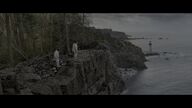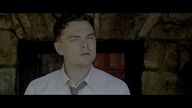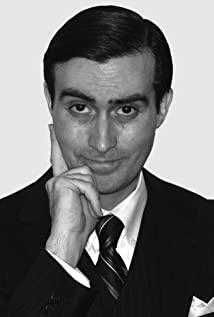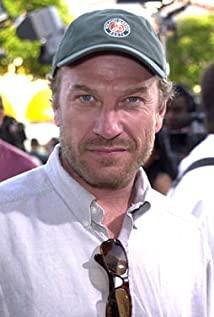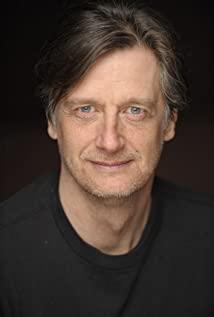The atmosphere of the film is still full of Martin’s usual style. At the beginning of the film, the gloomy weather, Leonardo’s frowning brows, Kojima’s suppressed and strange atmosphere, and some of the characters that appear bright and crude, quickly let I think of the poor streets that used to be under Martin's lens. In this style, the creation of a weird story can be said to have the most natural background, so Martin asked the bailiff Teddy to interweave reality with two dreamlike clues, filling the story with a strong mystery. One clue is the scenes of World War II that Teddy constantly remembered in his dreams. During the liberation of the Dachau concentration camp, he not only witnessed the hell-like scenes on the earth, but also deeply experienced the extremes that the darkness of human nature can achieve. Although this clue is also presented in a fantasy form, it is connected to the historical facts of World War II, so it is easy to give the audience a real impression. It naturally brings the expectation that this memory and the status quo are intertwined, and the suspense of this clue is also naturally created. ; Another clue is that he and his dead wife continue to talk in dreams. Teddy’s pain and anxiety made the audience feel sympathy for him naturally, and these scenes are complete dream illusions. For the audience, The experience here is just a husband’s deep love for his wife. Even if Teddy mentioned that he came to the island to find the murderer who caused his wife’s tragic death, it still makes people unable to have too many plot extensions of the dreams themselves, and they can’t be compared with them. The missing drowning mothers on the island also set the stage for the subsequent reversal.
Afterwards, the advancing and blending of the two clues of the film showed its special charm. On the one hand, clues based on the historical facts of the concentration camps of World War II made the conspiracy that Ted tried to reveal in the film more and more real. The concentration camps of World War II imprisoned millions of Jews, and the Nazis used a series of ideological education to make the public realize that these people are sinful, sick, and should be treated separately. In the end, they were imprisoned in the loneliness of society. No one cares about the island, and they are naturally at the mercy of the Nazi executioners, including some criminal "scientific experiments." And Ted’s narrative perspective also made us realize how similar this confinement island itself is to the Nazi concentration camps, and even how similar the spiritual core is. Similarly, since Ted’s arrival on the island, the prison guards described it in a shocking tone. Because of the horror of the imprisoned mental patients, and the crimes they committed are so horrible, it is natural for this group of people to be separated from society in the eyes of the public, and they need to be treated, even for the so-called For the overall benefits of society, various methods can be applied for the "good" of patients, and various experiments can also be carried out in blind corners of social ethics that no one pays attention to. And Ted’s gradual exploration of the confinement island, especially after encountering the mysteriously missing "female prisoner", deepened the audience’s understanding of conspiracy theories, and the tragedy that Ted witnessed in World War II made us feel that he had the darkness of human nature. He has a deep understanding and hates the ugliness of human nature, so it is appropriate for him to reveal the truth. This clue is continuously strengthened, allowing the audience to gradually step into the "trap" of Xicoses. However, even after the truth is revealed, you look back and find that the epistemological perception of this clue is not compromised because it is an illusion. Ted is also a patient himself, but the appearance and interior of the confinement island that he examines from the perspective of the role of the outsider as a patient also strengthens our re-understanding of this group of marginalized people.
From the time when Ted found his partner under the cliff and found that his body was missing, I began to feel that this piece of "ghost", the film eventually led to a schizophrenic direction. Finally, the clues began to be reorganized. Ted’s family tragedy made people feel very sad. It can be said that the tragedy of the Dachau Concentration Camp in World War II gave Ted a huge destruction of the macroscopic understanding of human goodness, and the tragedy of his wife and children. It also gave him a huge damage to the good understanding of human nature at the microscopic level. The society is sick, he is crazy, he doesn't want to face that he has nothing. It can be said that without surgery to remove any part of his brain, personal experience has already caused his brain to be severely damaged. I hope I'm still the police officer who can punish evil and promote good, "hope" his wife will die in an arson caused by others instead of his own pistol; "hope" the child will die from another mother's madness, and even "hope" these murders His child is not his own, and I hope all this is just a conspiracy waiting for him to uncover. In many cases, when people cannot face the reality they can see, they can only use "conspiracy theories" to relieve themselves of helpless despair. When desperate for the world, we need superheroes. Ted let himself Becoming a superhero, trying to destroy the confinement island spiritually, is actually trying to save your heart that has been confined. In the end, when he discovered the truth, it was also when he was most painful, but he was still unable to save it.
The final ending is intriguing. My personal interpretation is that, in fact, he is already sober and aware of his past and the real world he is in, but his choice is to continue to play the role of Ted, because it makes him more comfortable. To solve the pain in the heart, the choice at this time is no longer a passive mental disorder, but an active choice. He stayed on the island of confinement, not only physically, but also spiritually, but can the active choice at this time make him "enter into the play" as before? What did this deeply painful treatment give him?
For a deeper interpretation and experience of this story, it may be necessary to read the original work. It must be soon introduced by keen Chinese booksellers. However, before that, Martin Sikoses’ adaptation has been very good. This film did not have a very deep dream analysis like "Mulholland Road", but looked normal with a nervous and suspenseful look. The story attracts the audience, while at the same time influencing the audience with the Western Cossian cold style, this is a wonderful thriller movie in itself. The soul shock and the reversal of tragic awakening and dying makes the whole film intriguingly stepped up. Leonardo DiCaprio continues to temper and grow his acting skills. The performance of this film has a very good portrayal of the protagonist’s psychology, but like several performances in recent years, it seems a bit too hard, but His ascent trajectory is solid, and it's definitely reliable to follow Old Man Xicoses.
http://hi.baidu.com/doglovecat/blog/item/f350dd3f88e139ce7c1e713d.html
View more about Shutter Island reviews



